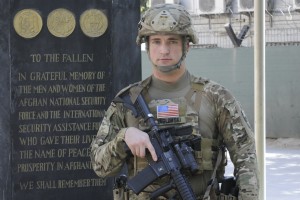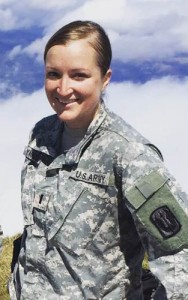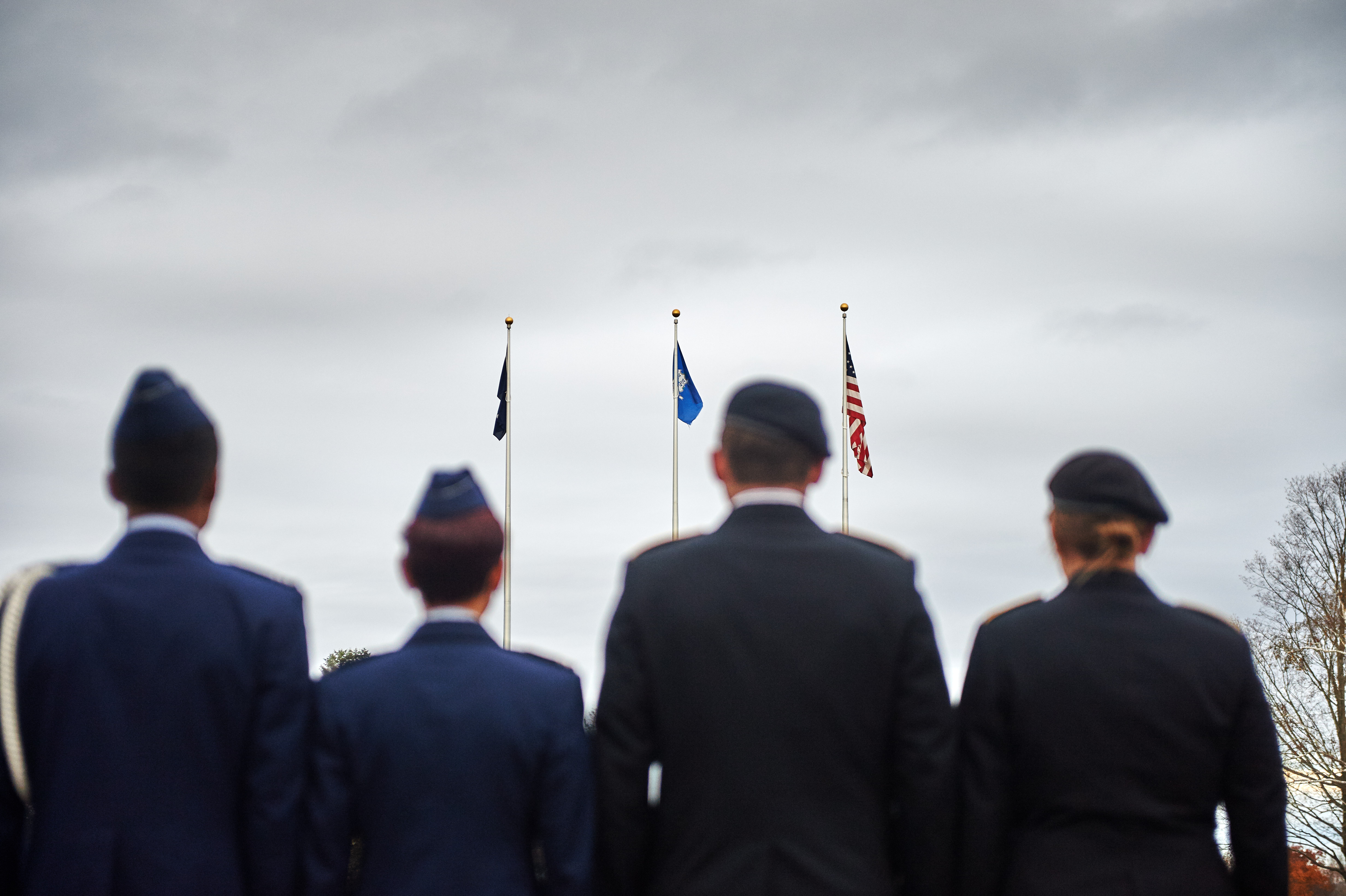Walking the nighttime perimeter of his base in Kabul, Afghanistan, First Lieutenant Scott Yaglowski ’12 (CLAS) may well be dreaming of wings. Wings from Wings Over Storrs. The West Texas Mesquite to be precise.

Yaglowski says going out for those wings is one of the first things he plans to do when his tour ends and he comes home to Connecticut, in December or January. At the top of his list, however, is seeing his family in Newington and hugging his little sister.
Unfortunately he will have to wait a bit longer to hug his older sister. Krista Yaglowski ’09 (BUS), also an Army First Lieutenant in the Connecticut National Guard, is stationed in Kosovo until the spring.
“The most difficult part of this deployment is yet to come — the holiday season,” said Krista in an email. “I come from a very close family and I will miss them dearly during the Thanksgiving and Christmas weeks.”
The Yaglowski siblings both ended up in the Guard because of Scott’s time as an ROTC cadet at UConn. By then Krista had graduated from UConn with a degree in Business Marketing and was quickly moving up the ladder at an HVAC company. But she says she wasn’t finding it very rewarding or challenging.
“Scott was involved with ROTC and it was all he ever talked about,” said Krista. “The more I learned the more it intrigued me.”
Scott set her up with a recruiter and, “After only one meeting discussing my options I knew the exact job I wanted and the path to getting there. I had to join,” she says.
Krista is now part of the aviation battalion staff and also works in public affairs for the peacekeeping mission in Kosovo.
Scott, who works as a firefighter in Danbury, is now responsible for controlling the defenses of the NATO-led Resolution Support Mission HQ in Kabul, which trains Afghans to be in charge of their own government and military.
Talking to UConn Today by phone, Scott described the office building he was in as one that “could be pretty much anywhere.” Outside the window, though, are “very tall mountains in the distance, and, closer, the city of Kabul. Across the street is the U.S. Embassy and the Afghan Presidential Palace.”
Scott said his first impression of Kabul was very different from the images he had in his mind. “I expected desert, lots of sand. Instead it is very populated, built up, lots of roads, buildings, embassies. And there is desert, yes, but also mountains in all directions.”
His base is home to about 2,500 people from 42 countries, with some 30 generals in the mix. On any given night, he may be doing patrols with soldiers from seven other nations. One of the biggest challenges, of course, is the number of languages spoken.
“You learn a little of theirs, they learn a little of yours. And everyone uses lots of hand signals,” said Scott. “Even working with the Brits and Australians can be tricky, they have different words for different things. The Australians will say we are meeting in a fortnight.”
Scott said his time at UConn prepared him well for the job he’s doing. “My sociology professors taught me about looking at things with an open mind. Learning about different people and cultures and how they interact with each other and society without the cultural biases of your own society.”
Cultural awareness classes in ROTC and pre-mobilization training helped with that, too. “You need to know that certain gestures, for instance, can be considered offensive. You don’t wave at people with your left hand or show people the bottom of your feet — that would be disrespectful,” said Scott, adding that the Afghans have been very friendly and welcoming. “If you go to the Bazaar they will walk you over to their shop and they want to sit with you, talk with you, have tea and ask about your family. The kids wave and give you a thumbs up.”

Krista, too, has found her Kosovo community welcoming of foreign troops. “They are very friendly and pro-NATO and Americans. We interact with them on a daily basis, whether it be joint training, teaching English to students, or participating in community events.”
The Yaglowskis say they are happy the time difference is just a couple of hours between Kosovo and Kabul, so they can talk frequently to bounce ideas off one another, talk about what they’ll do when they get home, and maintain their well-honed sibling rivalry.
“There’s always been competition between us,” said Scott. “Everything from high school SAT scores to written flight tests to who got commissioned first. She thought she was gonna’ win that one but I ended up getting ‘in country’ first.” That was because while Krista was waiting for her unit’s scheduled deployment in May, Scott volunteered to go in April with a unit that was needed on short notice.
“We’ve always been competitive,” acknowledges Krista. “We don’t keep score, but I think I got up water skiing in fewer tries than Scott did! He tends to be more competitive when it comes to the military and progression (through the ranks). I think it comes from being the younger brother who joined first. As we’ve grown up, he’s become much more protective and taken on an older brother role. Since I signed a year after him, it just amplified that in this aspect. I would go to him for information and advice as I was learning the trade.”
This is especially true because theirs is not a family with a military tradition, she said. Although, “Who knows? Maybe we’ve started one.”



